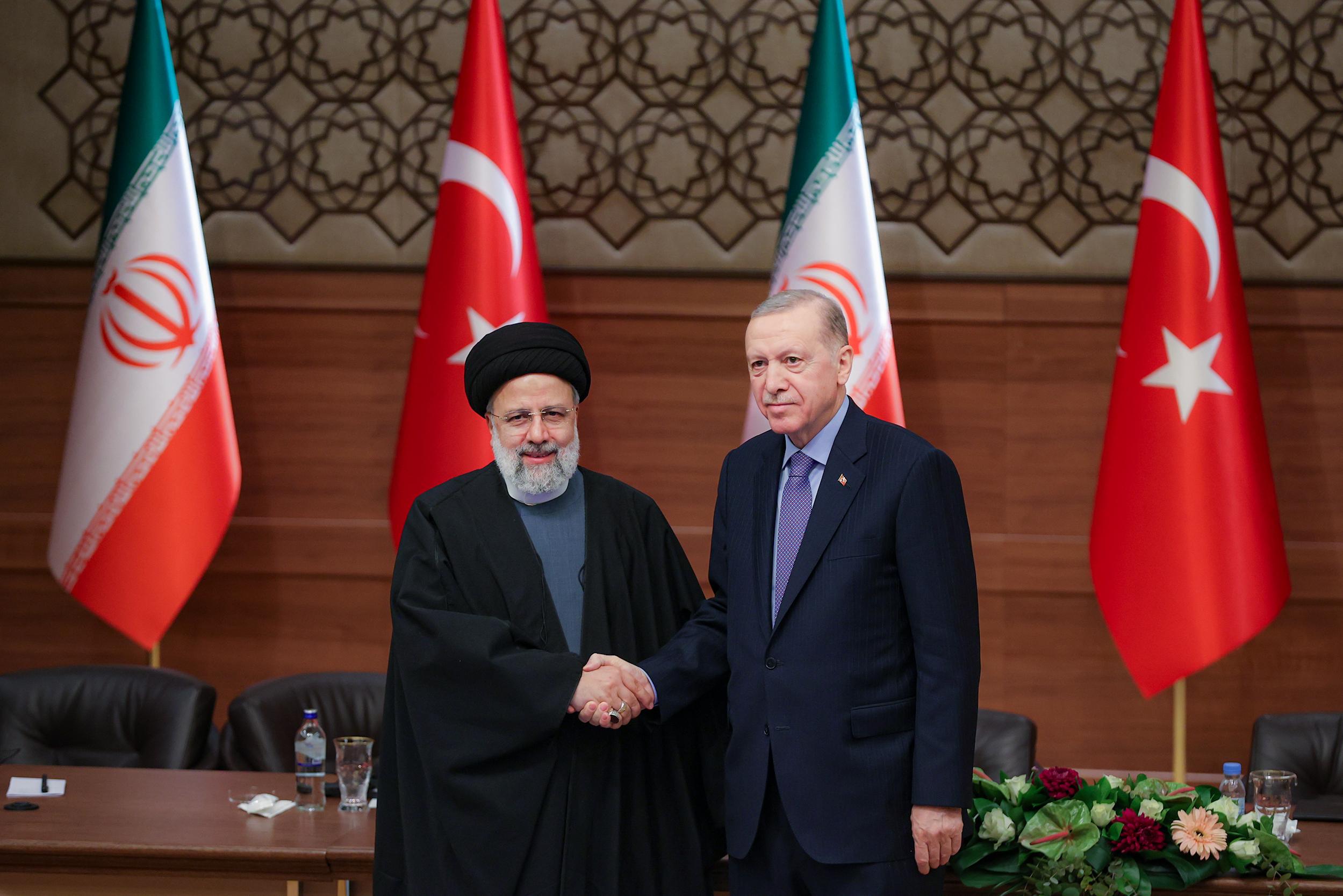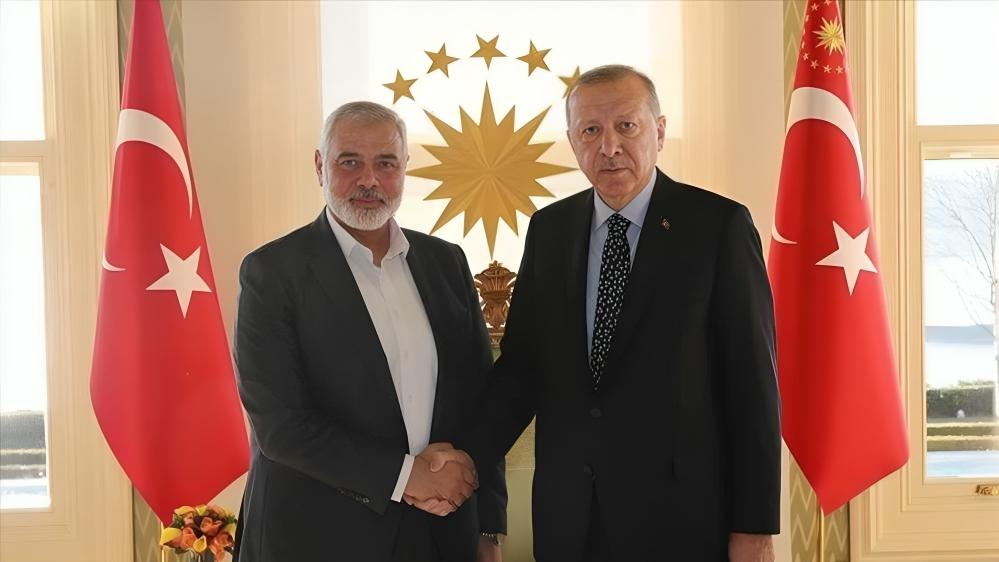How did the Gaza War boost the Iran-Türkiye partnership? Friendship amid the war
On January 24, Iranian President Ebrahim Raisi arrived in Ankara to meet his counterpart, President Recep Tayyip Erdogan, to discuss bilateral ties and foster new partnerships in vitally important fields, particularly security. The visit comes amid growing fears about the regional repercussions of the war in Gaza, which Israel launched in reprisal for the unprecedented October 7 attacks launched by Hamas.
Iran and Türkiye have a common position in supporting the Palestine and Hamas militant organizations against Israel. Both leaders’ remarks come as Israel ramps up attacks against Iranian-backed militias in Syria and Lebanon, including the latter’s powerful Hezbollah group. Israel has also assassinated senior commanders of Iran’s elite Islamic Revolutionary Guard Corps (IRGC) in Syria recently.
Historically, Turkish-Iranian relations were characterized as a mix of cooperation and competition. Each of the two has its own agenda and regionally projects power with ambitions toward sovereignty and control. The worsening of the Middle East's regional situation has provided an opportunity for the two countries’ aspirations to expand. Türkiye and Iran have historically been rivals rather than close partners. While they may share particular economic and security interests, their interests are at odds in many Middle East areas.
Iran, with its radical Shia ideology and persisting hybrid warfare strategy in the Middle East, threatens to destabilize the region further, while Türkiye cautiously watches Iran's attempts to interfere in regional affairs, especially in the Gulf region. Indeed, Tehran's hostile approach toward the Gulf goes against Ankara's interests, though it abstains from openly confronting the neighbour.

More recently, Turkey’s Middle East-oriented foreign policy initially appeared to bring Ankara closer to Tehran. However, by becoming a Middle Eastern player again, a resurgent Ankara has, in fact, emerged as the natural challenger to the other key Middle Eastern actor: nuclear power and hegemony-seeking Iran.
Shortly, the unstable region with failed states like Iraq, Syria, and Lebanon became the main scene of rivalry between the two states. For instance, both Türkiye and Iran opposed the Iraq war at first, the fact that they have supported opposing camps in successive Iraqi elections has rekindled their competition. Today, Ankara and Tehran eye each other warily; neither wants the other to have more influence in Iraq or Syria.
Furthermore, after October 7, when the Palestinian issue was brought back to the international agenda with the Israeli attacks on Gaza, the Iranian media developed the discourse of “hypocrisy” to criticize Türkiye’s Palestinian policy and its relations with Israel. As the Israeli attacks on Gaza intensified, President Erdoğan’s and Türkiye’s increasing expressions of support for the Palestinian people were critically evaluated in the Iranian press as “hypocritical policies.”
The reason for Iran’s bellicose rhetoric against Türkiye is its leading role in protecting the rights of Palestinians, vast resources, and strong positions, which overshadow Iran’s involvement. Both Ankara and Tehran have ties with Hamas, albeit of a different nature. Unlike its Western allies, Ankara does not consider Hamas a terrorist organization and provides its leaders with safe havens on its soil.

On the other hand, Iran provides comprehensive political, economic, and military support to Hamas. Tehran is ostensibly trying to take advantage of the changing regional circumstances and the growing anti-Israeli sentiment in the Muslim world triggered by Israel’s disproportionate and indiscriminate assault on Gaza in the wake of the October attacks. In addition, during the crisis period, Iran attempted to obtain the role of a "mediator" alongside Türkiye to release hostages from Hamas captivity, though unsuccessfully.
Nevertheless, Türkiye's decision to sever diplomatic ties with Israel amid the war somehow stabilized relations with Tehran as it sought to isolate Israel and expose its vulnerability. Likewise, Ankara and Tehran enormously efforts to sideline external influence in the Middle East, thus downgrading support to Israel. Also, Ankara and Tehran are disturbed by the American presence in Syria.
Ankara sees the U.S.’s continued support for Kurds in northern Syria as an obstacle to its efforts to prevent Kurdish autonomy under the leadership of the Democratic Union Party and the People’s Protection Units (YPG), which Turkey views as an extension of the Kurdistan Workers’ Party (PKK).
The Israel-Hamas war paved the way for an enhanced Iran-Türkiye partnership to strengthen regional security and develop a common strategy to tackle crisis situations.








